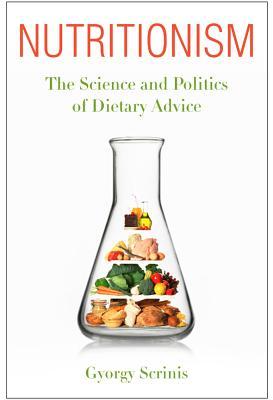I started a new book yesterday, which I hoped to finish in time for this post, and--nope--it's not Michael Pollan's new Cooked, which I've placed a library hold on, but rather:
Looks good, huh? So far it's fascinating (I'm at 36%). Scrinis follows the development of nutritional reductionism, from the discovery of vitamins to the first mainstream diets to the low-fat era. Rather than see food holistically, we treat it as a nutrient delivery system, not paying any attention to how our body metabolizes the form of the food (whole or processed), what it's eaten with or how. It never occurred to me that 2% milk is processed. Dumb, I know. It's not like there are any 2% cows in nature.
In any case, it's too soon to report on the book, but it did get me thinking about a family food experiment. Would it be possible to abstain from highly processed foods for a designated time period? Say, a week? I could manage a week, I imagine--anyone can manage a week of anything--but could I wean my kids? It would mean no breakfast cereal, no sandwich meat, no school lunch, no tortillas, no storebought pasta, no pretzels after school. (I can already hear the groaning and complaining.) Would it also mean no cheese or peanut butter?
I'm not making any promises now. It seems a safer experiment to make in the summer, when our beloved Bellevue Farmers Market is going and the world abounds with luscious, in-season, whole foods. I'd also like to get to the end of Scrinis' book and read about how our bodies handle processed foods before I declare all-out war. And any war declared would have to be by eaters, not by the government. I may only be 36% in, but the message is clear that the government is too tied to the food/dairy/meat industry to enforce whatever they choose to enforce, if they could even make up their minds what should be enforced.
And is it even possible to go entirely off highly-processed foods, if your family doesn't have the money, leisure, or skills to prepare its own food? While I may not yet have reviewed Michael Pollan's Cooked, the food industry has here, and their main complaints are totally valid:
1. "There’s nothing wrong with home cooking and quite a lot to be said for
it, but ultimately it takes time and effort that some people simply
don’t have or would rather spend on other things"; and,
2. "...doing things Pollan’s way is much more expensive (even before any new taxes), which in a time of economic struggles is far from appealing."
Whew. I've tried to pass on my #OrganicTightwad tips, but there's no denying produce and pastured meat are pricey and that not everyone likes to cook. I've already told my kids that, when they get married, somebody--I don't care who--has got to know how to cook and to enjoy cooking. Otherwise life is too expensive and unhealthy.
Okay. I'm done for now.
The good news is, the Market opens Thursday, May 16, in the Bellevue Presbyterian Church parking lot! Mark the old calendar because, if you like to cook you'll need to load up on local, whole foods, and, if you don't like to cook, you can get fabulous meals made by those who do.
Wednesday, April 24, 2013
Subscribe to:
Post Comments (Atom)


I have had migraine headaches all my life. (I'm 52.) A few years back, when I thought I had an ulcer and was on an extremely restricted diet--baked chicken breasts and plain steamed rice--I added foods back in gradually to see if any seemed to bring on a headache. Suffice it to say that I stopped eating processed foods. Later, I also dropped carbohydrates. Yes, it's somewhat limiting, and yes, it's a bit more time-consuming, but it means the difference between having a dozen migraines a month to having one once in a blue moon.
ReplyDeleteHere's a tip to make the cooking much easier: get an electric grill, like the George Foreman or the one they stock at Costco. Meat cooks in half time time and cleanup is quick and easy. Saute a veggie and you're good to go.
That's fabulous about your migraines diminishing. Think you better keep on keeping on!
Delete